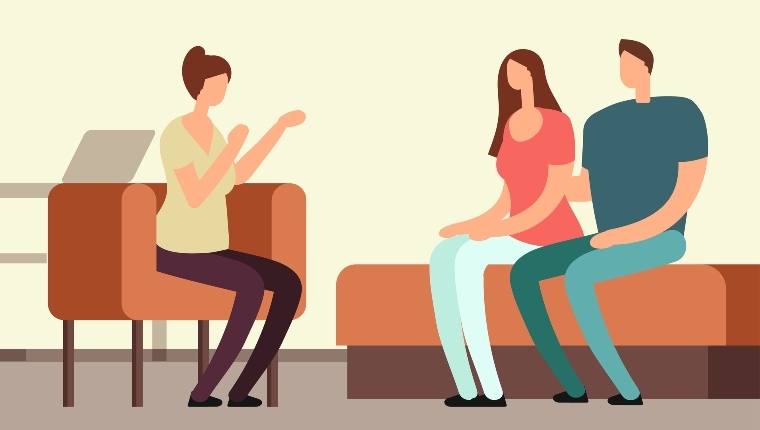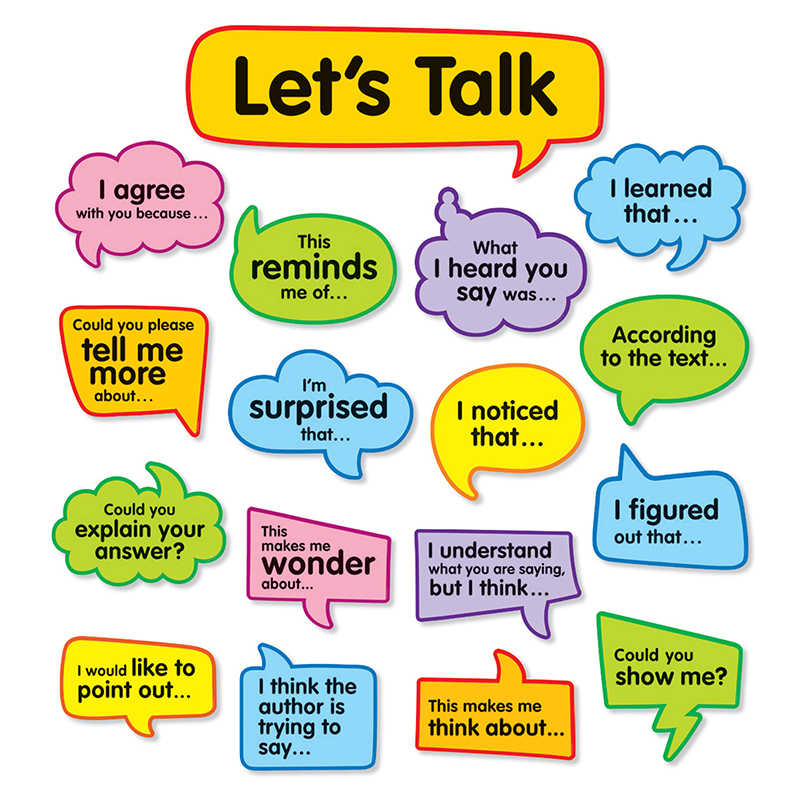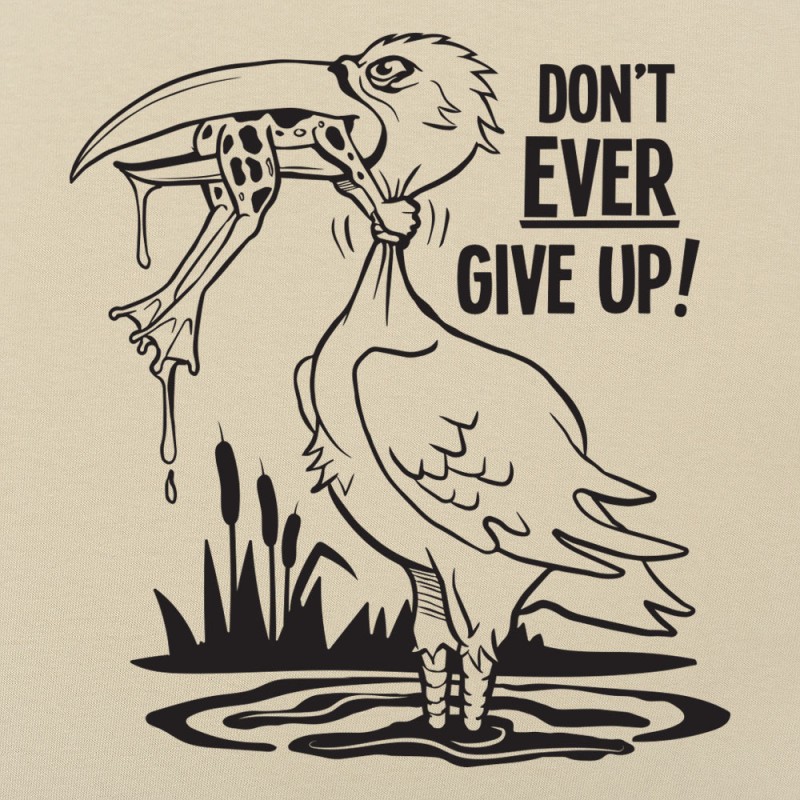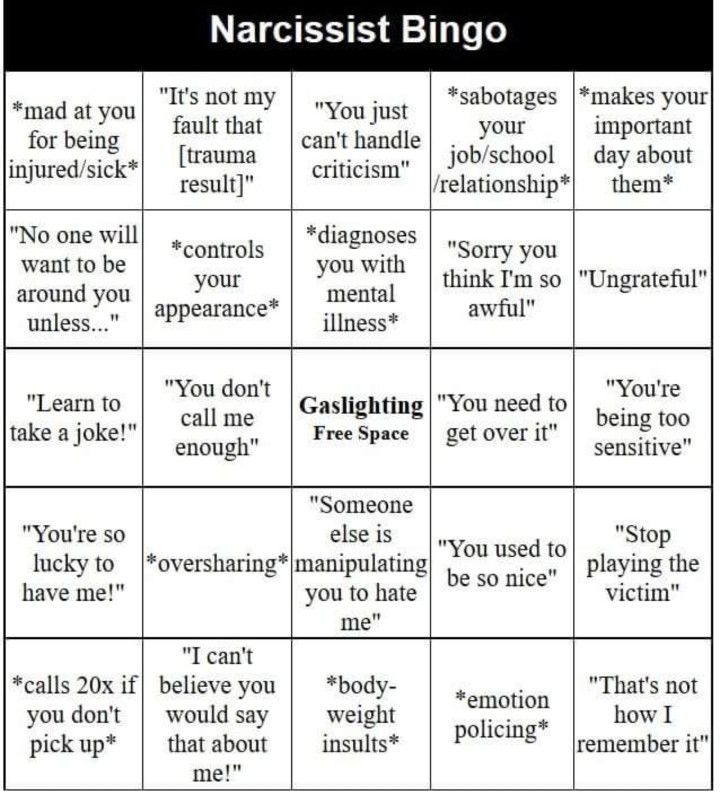What to talk about in couples therapy
What to Expect at Your First Couples Counseling Session
If you are considering couples counseling for the first time, you may be wondering what to expect from the first session.
You might think, “What will it be like?” or “Will I be antagonized by the therapist or my spouse?” You also may be skeptical of therapy even working for your relationship. A lot of fears and stigmas that stem from the idea of couples counseling are often put to rest after a couple attends their first therapy session.
You Will Meet Together as a Couple
When you meet the therapist for your first session, you and your partner will meet the therapist together (rather than individually). Most of your sessions will be together, apart from one or two individual sessions. The purpose of the individual session is for the therapist to receive some background and history on each of you separately and give the counselor a chance to be more understanding to each of your specific needs.
After that initial session together, you may have one (maybe a second) individual session, and for the rest of your sessions, you and your partner will be working together on your relationship issues. The first session will set the stage for what you can expect during future sessions, and will prepare an environment where you and your partner can be encouraged to express your feelings and past experiences together.
Address History of Relationship Distress
During the first session, expect to discuss the history of your relationship distress. The therapist will want to know the main problems you are experiencing, and what causes most of your stress within the relationship.
Some aspects of relationship stress that may be discussed include parenting conflicts, intimacy issues, and communication issues (or other types of distress). It is essential to be open and honest about your relationship history with your therapist because it is the basis for setting goals in counseling. Once the significant issues of your relationship are highlighted, you will all work together to find ways to improve those areas of distress within your relationship.
Goals Setting
Goal setting is very important to understand when it comes to therapy. As you attend your first session, you will set goals for the relationship. The goals you set will help you and your partner to experience more positive interactions and connectedness.
As you attend your first session, you will set goals for the relationship. The goals you set will help you and your partner to experience more positive interactions and connectedness.
What if you don’t really know what your goals should be? It’s okay – it’s the first session. If you are unsure of where to start with goals, your therapist can help you to set your first goals.
Contrarily, if you know what goals you want to work on together, that can be a great start. Based off your relationship history, you and your partner can determine goals to propose to your therapist. Either way, your therapist will be there to guide you and your partner to a place of peace and connectivity.
What if Our Goals are Different?
Every person that goes to counseling has different goals, which means you and your partner may have different perspectives. You could be going into counseling hopeful that the relationship is worth fighting for, while your partner is not so sure. This could make your initial goals a bit different from each other.
Despite differing perspectives shared during the first session, it doesn’t mean that the relationship is doomed. Both of you can still work together with the therapist to find healing and improvement for your relationship. The overall goal is to achieve confidence in yourselves individually, and as a couple to move forward in the relationship.
To be successful in couples therapy, you must find balance when working on relationship issues with your partner. Whether you choose to part ways or work through your relationship issues, the therapist will determine a treatment plan that fits your needs, promoting healing and positivity (regardless of the outcome).
You Should Feel Understood
Having a good connection with your therapist is vital if you want to have productive counseling. Your therapist should display empathy and understanding toward both of you during your sessions.
For example, if you are expressing concerns with your therapist, you should feel that you are being taken seriously. Confidence in your therapist will leave you feeling relieved and comforted by the fact that you feel understood during therapy.
Confidence in your therapist will leave you feeling relieved and comforted by the fact that you feel understood during therapy.
If not, you will likely not trust the therapist, leading to doubts and distress in therapy (and your relationship).
Feeling understood is more than just being taken seriously. Your therapist should create an environment for you and your partner to openly express your feelings and concerns. You should be encouraged and motivated to achieve your goals, and overtime feel confident that reaching those goals is possible.
Fear of Incompatibility or Divorce
Many people fear that relationship counseling will lead to a therapist encouraging you and your partner to split up – that is not the case.
Counseling is meant to promote healing, not separation. A therapist is not to express whether they think you are compatible or if divorce is in order. Their role is strictly to walk you through the struggles of your relationship by teaching you how to handle your differences, achieve effective communication, and cope with your relationship issues together.
The decision to separate or stay together is entirely up to you and your partner.
Be Vulnerable
Being vulnerable is essential to success in therapy. Vulnerability is allowing yourself to talk about the pain, embarrassment, and insecurities you struggle with in your relationship.
Naturally, you may tend to withhold information at the beginning of your session because your therapist needs to earn your trust. When you start to feel comfortable enough to show some vulnerability, you will receive much better outcomes during therapy.
If you plan on setting and achieving any goals during your time in counseling, you should make it a goal to build a trusting relationship with your therapist in order to feel comfortable expressing your weaknesses.
Clearly, there are a lot of thoughts and concerns that will cross your mind when you try couples counseling for the first time, and that is all completely understandable. Building trust with a therapist can take a long time, as well as healing your relationship. The best way to approach your first few sessions of couples counseling is to go in with an open mind, and be honest with yourself, your partner, and your therapist.
The best way to approach your first few sessions of couples counseling is to go in with an open mind, and be honest with yourself, your partner, and your therapist.
How to Get the Most From Your Couples Therapy
Couples are often uncertain what to expect from the process of couples therapy. They are not sure of what to expect of the therapist or even if the therapist has any expectations of them.
I have found most couples approach therapy with the notion that each person will describe their distress and somehow the therapist will assist them to create a happier, more functional, relationship. They expect to learn some new or better skills. However, most people hope their partner will do most of the learning in problem areas.
After 30 years of clinical experience and specializing in working with thousands of couples, I have arrived at some guidelines that can make our work more effective. First, I do have some expectations of you. I am not neutral. I have evolved principles and concepts that I believe give us the greatest chance for success.
I believe my primary role is to help you improve your responses to each other without violating your core values or deeply held principles. So that you may know some of my key guiding principles, I have created this document to provide clarity and focus to our work.
Your job is to create your own individual objectives for being in therapy. Like a good coach, my job is to help you reach them. I have many, many tools to help you become a more effective partner – they work best when you are clear about how you aspire to be.
Goals and Objectives of Couples Therapy
The major aim of therapy is increasing your knowledge about yourself, your partner and the patterns of interaction between you. Therapy becomes effective as you apply new knowledge to break ineffective patterns and develop better ones.
The key tasks of couples therapy are increasing your clarity about:
- The kind of life you want to build together
- The kind of partner you aspire to be in order to build the kind of life and relationship you want to create
- Your individual blocks to becoming the kind of partner you aspire to be
- The skills and knowledge necessary to do the above tasks
Tradeoffs and Tough Choices
To create sustained improvement in your relationship you need:
- A vision of the life you want to build together
- To have a life separate from your partner because you are not joined at the hip
- The appropriate attitudes and skills to work as a team
- The motivation to persist
- Time to review progress
To create the relationship you really desire, there will be some difficult tradeoffs and tough choices for each person.
The first tradeoff will be time. It simply takes time to create a relationship that flourishes: time to be together, time to be with family, time to play, coordinate, nurture, relax, hang out and plan. This time will encroach on some other valuable areas – your personal or professional time.
The second compromise is comfort. That means emotional comfort, like going out on a limb to try novel ways of thinking or doing things, listening and being curious instead of butting in, speaking up instead of becoming resentfully compliant or withdrawing. At the beginning, there will be emotional risk taking action, but you will never explore different worlds if you always keep sight of the shoreline. In addition, few people are emotionally comfortable being confronted with how they don't live their values or being confronted with the consequences of their actions.
The other comfort that will be challenged is energy comfort. It simply takes effort to sustain improvement over time: staying conscious of making a difference over time, remembering to be more respectful, more giving, more appreciative etc. It takes effort to remember and act.
The other effort is even more difficult for some people: that is improving their reaction to problems. For example, if one person is hypersensitive to criticism, and his/her partner is hypersensitive to feeling ignored, it will take effort to improve their sensitivity instead of hoping the partner will stop ignoring or criticizing.
In all these areas, there is generally a conflict between short-term gratification and the long-term goal of creating a satisfying relationship. The blunt reality is that, in an interdependent relationship, effort is required on the part of each person to make a sustained improvement. It is like pairs figure skating – one person cannot do most of the work and still create an exceptional team.
How to Maximize the Value from your Couples Therapy Sessions
A common yet unproductive pattern in couple's therapy is making the focus be whatever problem happens to be on someone's mind at the moment.
This is a reactive (and mostly ineffective) approach to working things through.
The second unproductive pattern is showing up and saying, “I don't know what to talk about, do you?” While this blank slate approach may open some interesting doors, it is a hit or miss process.
The third common unproductive pattern is discussing whatever fight you are now in or whatever fight you had since the last meeting. Discussing these fights/arguments without a larger context of what you wish to learn from the experience is often an exercise in spinning your wheels.
Over time, repeating these patterns will lead to the plaintive question, “Are we getting anywhere?”
A more powerful approach to your couple's therapy sessions is for each person to do the following before each session:
- Reflect on your objectives for being in therapy.
- Think about your next step that supports or relates to your larger objectives for the kind of relationship you wish to create, or the partner you aspire to become.
This reflection takes some effort. Yet few people would call an important meeting and then say, “Well, I don't have anything to bring up, does anyone else have anything on their agenda?” Your preparation will pay high dividends.
Important Concepts for Couples Therapy and Relationships
The following ideas can help identify areas of focus in our work and/or stimulate discussion between you and your partner between meetings. If you periodically review this list, you will discover that your reflections and associations will change over time. So please revisit this list often, it will help you keep focus during our work.
Attitude is Key
When it comes to improving your relationship, your attitude toward change is more important than what action to take.
Identifying what to do and how to do it is often easy to identify. The bigger challenge is why you don't do it.
How to think differently about a problem is often more effective than just trying to figure out what action to take.
Your partner is quite limited in his/her ability to respond to you.
You are quite limited in your ability to respond to your partner.
Accepting that is a huge step into maturity.
The definite possibility exists that you have some flawed assumptions about your partner's motives. And that he/she has some flawed assumptions about yours. The problem is, most of the time we don't want to believe those assumptions are flawed.
Focus on Changing Yourself Rather than Your Partner
Couples therapy works best if you have more goals for yourself than for your partner. I am at my best when I help you reach objectives you set for yourself.
Problems occur when reality departs sharply from our expectations, hopes, desires and concerns. It's human nature to try and change one's partner instead of adjusting our expectations. This aspect of human nature is what keeps therapists in business.
The hardest part of couples therapy is accepting you will need to improve your response to a problem (how you think about it, feel about it, or what to do about it). Very few people want to focus on improving their response. It's more common to build a strong case for why the other should do the improving.
You can't change your partner. Your partner can't change you. You can influence each other, but that doesn't mean you can change each other. Becoming a more effective partner is the most efficient way to change a relationship.
It's easy to be considerate and loving to your partner when the vistas are magnificent, the sun is shining and breezes are gentle. But when it gets bone chilling cold, you're hungry and tired, and your partner is whining and sniveling about how you got them into this mess, that's when you get tested. Your leadership and your character get tested. You can join the finger pointing or become how you aspire to become.
Nothing is impossible for the person who doesn't have to do it.
Fear lets you know you're not prepared. If you view fear in that mode, it becomes a signal to prepare the best you can.
You can learn a lot about yourself by understanding what annoys you and how you handle it.
The more you believe your partner should be different, the less initiative you will take to change the patterns between you.
Zen Aspects of Couples Therapy (Some Contradictions)
All major goals have built in contradictions, for example, speak up or keep the peace.
All significant growth comes from disagreements, dissatisfaction with the current status, or a striving to make things better. Paradoxically, accepting that conflict produces growth and learning to manage inevitable disagreements is the key to more harmonious relationships.
It's not what you say. It's what they hear.
Solutions, no matter how perfect, set the stage for new problems.
Tough Questions
Asking good questions–of yourself and your partner–helps you uncover causes beneath causes.
In a strong disagreement, do you really believe your partner is entitled to their opinion?
Under duress, do you have the courage and tenacity to seek your partner's reality and the courage to express your reality when the stakes are high?
Why is it important to let your partner know what you think, feel and are concerned about? (Because they really can't appreciate what they don't understand. )
What is the price your partner will have to pay to improve their response to you? How much do you care about the price they will have to pay? (Everything has a price and we always pay it.)
Can you legitimately expect your partner to treat you better than you treat him/her?
If you want your partner to change, do you think about what you can do to make it easier?
When a problem shows up, it's natural to think “What should I do about it?”
A much more productive question is. “How do I aspire to be in this situation?”
The Importance of Communication
The three most important qualities for effective communication are respect, openness and persistence.
Good communication is much more difficult than most people want to believe. Effective negotiation is even harder.
A couple's vision emerges from a process of reflection and inquiry. It requires both people to speak from the heart about what really matters to each.
We are all responsible for how we express ourselves, no matter how others treat us.
Communication is the number one presenting problem in couples counseling.
Effective communication means you need to pay attention to:
- Managing unruly emotions, such as anger that is too intense
- How you are communicating – whining, blaming, vague, etc.
- What you want from your partner during the discussion
- What the problem symbolizes to you
- The outcome you want from the discussion
- Your partner's major concerns
- How you can help your partner become more responsive to you
- The beliefs and attitudes you have about the problem.
No wonder good communication is so hard.
Some Final Thoughts.
You can't create a flourishing relationship by only fixing what's wrong. But it's a start.
Grace under pressure does not spring full-grown even with the best of intentions – practice, practice and more practice. Practice the right things and you will get there.
Love is destroyed when self-interest dominates.
If you don't know what you feel in important areas of your relationship, it is like playing high stakes poker when you see only half your cards. You will make a lot of dumb plays.
The possibility exists that we choose partners we need but don't necessarily want.
To get to the bottom of a problem often means you first accept how complex it is.
Trust is the foundational building block of a flourishing relationship.
You create trust by doing what you say you will do.
It's impossible to be in a highly inter-dependent relationship without ever being judgmental or being judged.
If you strive to always feel emotionally safe in your relationship and get it, you will pay the price by becoming dull.
If neither of you ever rocks boat, you will end up with a dull relationship
Knowledge is not power. Only knowledge that is applied is power.
Most of the ineffective things we do in relationships fall into just a few categories:
- Blame or attempt to dominate
- Disengage/withdraw
- Resentful compliance
- Whine
- Denial or confusion.
These are the normal emotional reactions to feeling a threat or high stress.
Improving your relationship means better management of these reactions.
Everything you do works for some part of you, even if other parts of you don't like it.
Three motivations will govern any sustained effort you make. You will seek to:
1. Avoid pain or discomfort
2. Create more benefits
3. Be a better person.
It's also true for your partner.
If you are asking your partner to change something, sometimes it's a good idea to ask if the change is consistent with how they aspire to be in that situation.
Businesses and marriages fail for the same three reasons. A failure to:
- Learn from the past
- Adapt to changing conditions
- Predict probable future problems and take action.
Effective change requires insight plus action. Insight without action is passivity.
Action without insight is impulsive. Insight plus action leads to clarity and power.
If you want to create a win-win solution, you cannot hold a position that has caused your partner to lose in the past.
“To be a champ you have to believe in yourself when nobody else will.”
Sugar Ray Robinson -Middleweight boxing champion, considered by many to be the best fighter in history, pound-for-pound.
P.S. please review this document periodically as there is simply too much to absorb in one reading of it. We all will benefit from your efforts.
If you’d like help with your relationship, click here to read more about our counseling services and contact us for a free phone consultation.
Problems of couples therapy - publication by Anna Solovieva, Polina Gverdovskaya's psychological help studio
should appear in good relations, and what pleased and helped to be together disappears somewhere.
When asked about relationship problems, we have two options for psychological work: individual or couples counseling. nine0003
Individual therapy helps me to better understand my own feelings and desires, to determine, first of all, for myself what I want in this relationship, what I hope for, what I expect, what makes me happy or frightens, whether I feel satisfaction or live in tension and doubts. In a word, in individual work each person can better know himself, his personal needs and desires.
Couple therapy helps to establish communication between two people: to make communication more open, flexible, to help people hear and accept each other, to move from discord to cooperation. nine0003
With the possibility of dialogue and attention to the partner, there is also an opportunity to discuss problems, no matter how complex they are and no matter what decision the couple makes.
The spectrum of problems with which couples therapy works is quite wide.
1. Reacquaintance.
It is no secret that people often enter into relationships being fascinated, in love and not having time to get to know their chosen one or chosen one well.
Moreover, often people don’t really understand their needs in a relationship - someone needs recognition, someone needs security, some people can be close for a long time, while others often need solitude ... and now the couple tries to live together, or maybe he has been living for a long time, but at some point people begin to “stumble” about the difference in expectations and plans regarding life together and the future. nine0003
The presence of this difference can be frightening - it can cause feelings of loneliness, separateness, confusion, resentment or fear, and a calm conversation about how to deal with differences, separateness and dissimilarity can be blocked by emotional reactions.
In couples therapy, partners can begin to talk about themselves and expectations from the other, about how they see their future life together - getting to know themselves and the other better, shaping relationships so that they suit both participants. nine0003
The therapist supports the couple's dialogue at moments of strong emotions, and also helps partners to be more direct and understandable in their words.
2. "Repair" of the couple's emotional life.
It happens that in a couple's relationship, trust and openness are replaced suddenly or gradually by closeness, alertness and tension.
This change of relationship can take place in different ways: sometimes, due to differences in character, people move away from each other in small steps, and the person who was once close becomes, after a while, distant and alien. nine0003
It happens that in some critical situation, one partner could not be available and supportive for the second, and perhaps the situation itself has long ended, but the experience of separation and abandonment still makes itself felt with deep distrust and detachment.
Accumulated or actual grievances and doubts are in the air of relationships, constantly poisoning them, and all attempts to talk and clarify only lead to an escalation of the conflict.
Couple therapy works with such emotional breakdowns by teaching partners to talk to each other about what brought pain, to listen and hear each other, but not in order to look for who "started" or "is to blame", but in order to to learn to cherish each other and close relationships, to explain rather than blame, and to care than to make excuses. nine0003
3. Conscious separation.
Sometimes people come to couples therapy to find out if they want to continue the relationship at all and, perhaps, to break up on good terms.
There is also a lot of pain and difficulties in this topic: sometimes one of the couple is ready to part, and the other is not, or parting is seen as the only way out due to the severity of the conflict, and then the main question is to resolve the accumulated pain, which will not become less from the break …
Sometimes people are really ready to say goodbye, and they need a quiet place to talk frankly about all the good things that connected them, and to recognize the importance of what has now separated them. nine0003
Whatever the request of a couple in couples counseling, the format of such work develops the ability to communicate more openly and friendly, increases the level of mutual respect and maintains close and deep bonds between people.
Sign up for a consultation with a psychologist
Subscribe to our Youtube
Our articles on Yandex Zen
7 tips for preparing for couples therapy
login
Welcome! Log in to your account
Your username
Your password is
Have you forgotten your password?
password recovery
Retrieve your password
Your email address
Life expert
-
1168
A few key ideas to understand how couples therapy works in a relationship, step by step.
Couples therapy is one of the most requested mental health services, and it's no surprise. In a relationship, there are situations in which you can not do without outside help. In these cases, the best solution is to consult a psychologist. nine0003
In fact, in Western countries the number of marriages that end in divorce is between 30 and 45%. If we assume that people who get married tend to be those who have already achieved a certain amount of stability in their relationship, this indicates problems in the relationship. These are far from rare exceptions.
Love is a state when you gain by giving.
On the other hand, marital therapy has been shown to be effective in increasing the likelihood that the bond will be strengthened and coexistence will improve. And this affects the fact that many try to rekindle their love relationships with the help of professional support. Now how does couples therapy work? This is the topic we will cover if you keep reading. nine0003
7 Keys to Knowing How Couple Therapy Works
These are fundamental guidelines that help you learn how couple therapy works. The data is given from the point of view of those who come to her as clients.
-
Determine if the problem should be resolved after therapy
Not all relationship problems can be solved through couples therapy. In fact, in some cases it is very important not to try this path. These are cases where a person becomes a victim of physical or psychological abuse. nine0003
In situations like this, the first and only short-term solution is to end the relationship immediately and ensure safety. Switching to therapy will exacerbate the problem by being used as an excuse to delay the break. However, family physicians do not work to lengthen these relationships.
-
Choose format: face to face or online
Currently, there are many groups of psychologists who, in addition to classical face-to-face therapy, also provide online therapy. nine0003
This is based on video calls through electronic devices with cameras. Usually, laptops or desktop computers are used for this. The main difference lies in the communication channel used and the fact of saving travel time and time.
-
Choose the right specialist
It is important that you choose a therapy center or office that employs registered psychologists. This is to ensure that they have the necessary knowledge and experience in this matter. nine0003
You can find a good specialist by asking your friends and acquaintances. Or ask your family doctor for a recommendation.
-
Set the day and time
Couples therapy requires a certain number of sessions. This requires a specific schedule appointed by a specialist. Make sure the time and day you choose is the same for both of you. This is a must so as not to create asymmetries and problems that could lead to new conflict. If you're pressed for time, consider online couple therapy. nine0003
-
Identify basic questions
Before you go to the session, you need to discuss the situation with your partner. Discuss the questions and problems you want to solve. If possible, you need to understand how you feel about this situation.
Of course, you should not be obsessed with an accurate and objective vision of the problem being solved. One of the main aspects of understanding how couples therapy works is not to try to fully understand what is causing your discomfort or dissatisfaction. A deeper understanding of this is part of the work you will be doing in therapy sessions with a psychologist. nine0003
-
Consider switching to individual therapy
Psychologists sometimes recommend combining couples therapy with individual sessions for one or both members of a couple to treat personal problems that affect relationships. In these cases, there is no need to look for the perpetrators. This is just another opportunity to overcome a problem that is likely to cause discomfort in other areas of life besides love relationships and living together at home.
-
Go to therapy and commit yourself to the process
It is extremely important not to miss sessions because this is usually used as an excuse to stop going to therapy. To get results, you need to maintain consistency. While the therapeutic process lasts, for several weeks or months.
Both men and women strive to love and wait for love, but they speak about it in different languages.
What you need to know about couples therapy
Before starting and attending couples psychology classes, both members of the couple who wish to attend must be sure that they want to continue the relationship. In addition, both partners agree that each is responsible for the situation.














